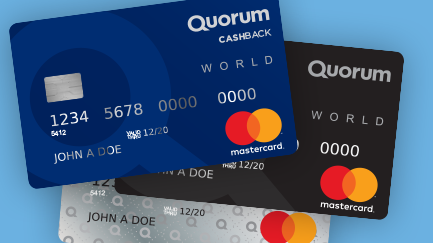Congratulations: Your hard work submitting countless resumes, attending networking events and answering dozens of “help wanted” ads has finally paid off: you’ve landed a job interview. Your initial excitement may quickly be replaced with nerves, however, as you begin to prepare for what has become one of the most intimidating aspects of the job hunt: How do you effectively convince a hiring manager that you are the ideal candidate for the position?
Fortunately, with some time-honored tips and online resources, you can confidently outshine other candidates, impress the interviewer, and, potentially, land that next exciting career opportunity.
Learn the Terrain and Research the Company
There is no substitute for meticulous research when it comes to preparing for your next job interview. In today’s digital age, you have numerous resources at your fingertips to quickly locate insightful information about an open position at a company including:
- Basic background data: When was the company founded and where is the headquarters located? What is the business’s mission statement?
- Online reviews: What are clients, current and former employees or competitors saying about this business?
- News and current events: What are the latest breaking developments and news stories for the sector in which the company competes? Are there new technologies or emerging trends in this industry?
- Financial considerations: What is the financial health of the business? Are there discussions of upcoming mergers with a larger company?
By looking at sites such as Bloomberg, Google News and Glassdoor, you can also learn more about the financial outlook, browse recent news or get the inside scoop on a business. Be sure to also check out a company’s social media presence on sites such as Facebook, LinkedIn or Twitter.
This research often helps unlock valuable information about a business’s current focus, new initiatives or even the latest products and services they offer. When combined, these resources may provide unique insight into the company and deliver useful background data. This can better prepare you for questions that may come up during your job interview.
Prepare for Commonly Asked Questions
Although it is nearly impossible to anticipate the full range of interview questions you’ll encounter, it helps to practice responses to commonly asked questions. Many prospective employers ask these questions at the start of the meeting to get the conversation moving forward. Your answers can break the ice, steer the conversation toward your strengths, build rapport with the interviewer and boost your confidence for the harder-hitting scenario-based questions which will likely follow.
At a minimum, prepare general responses for frequently encountered questions including:
- Why do you want this job?
- Can you tell me more about yourself?
- Why should I hire you?
- Why are you leaving your current position?
- What are your greatest strengths and weaknesses?
Practice answering additional suggested questions from a wide range of career sites including: Monster, Indeed and CareerSideKick.
Anticipate and Address an Interviewer’s Primary Concerns
In addition to preparing your responses for commonly asked questions, it helps to devote some time to considering the top qualities that make you the ideal candidate for the position. Prepare to discuss a few details and provide specific examples of how you demonstrate these qualities in the workplace. Regardless of sector, most hiring managers seek qualified candidates who exhibit strengths and well-developed skills like: advanced education and training, extensive work experience, a strong work ethic, enhanced communication skills, and ability to work well toward common goals within a team environment.
Show Up with Your Best Foot Forward
You’ve done your homework on the company’s profile, developed general responses for common questions and assessed your top three strengths: Now it is show time. Ensure you get a good night’s sleep, arrive at least 15 minutes early to the interview and consider the following:
- What to bring to your meeting: Pack several extra copies of your resume printed on high-quality paper for the interviewer or interviewing panel. You’ll also want to bring your list of references, a notepad, multiple pens and samples of your previous work, if applicable.
- Dress for the job you want: In a majority of cases, clean, neat and wrinkle-free conservative clothing in neutral colors is your best option. It not only presents a professional image but helps establish a positive initial impression with the interviewer.
- Watch your non-verbals: Project a confident image when you stay cognizant of your posture, eye contact, hand gestures and facial expressions throughout the interview.
How to Tactfully Discuss Salary, Time Off and Other Benefits
One of the primary concerns on most prospective employees’ minds during a job search is the subject of compensation and benefits. A majority of job announcements include this information or list a salary and benefits range based on an employee’s qualifications and experience.
If this information is not provided in the job announcement, it’s okay to ask for clarification during your interview. However, be sure to focus your initial efforts on making a good impression, answering questions to the best of your ability, and highlighting your skills and qualifications.
Near the end of the interview, most hiring managers are amenable to answering general questions from candidates about salary, time off, medical and dental coverage, 401(k) and more. If you broach these subjects, be sure to ask about the “starting” salary and benefits package for the position. If your interview goes well, and you receive a job offer, you may be able to negotiate a higher initial salary based on your unique skills, experience and qualifications.
End on a High Note
As the interview concludes, it is helpful to ask several questions of your own to demonstrate your strong interest in the position. By asking some of the questions below, you’ll help build a lasting impression on the interviewer and potentially stand out from the other candidates.
- Can you tell me more about why this company is such a great place to work?
- What elements do you use to evaluate employee performance?
- Are there opportunities here for advancement and professional development?
- What is the next step in the hiring process?
Finally, after the interview concludes, be sure to prepare a thank you note to your interviewer. This note, which can be as simple as a quick email or handwritten card, is a courtesy which helps further build your credibility and—potentially—enhance your professional image in the eyes of the hiring manager.
Good luck, and go get ’em!







Comments Section
Please note: Comments are not monitored for member servicing inquiries and will not be published. If you have a question or comment about a Quorum product or account, please visit quorumfcu.org to submit a query with our Member Service Team. Thank you.